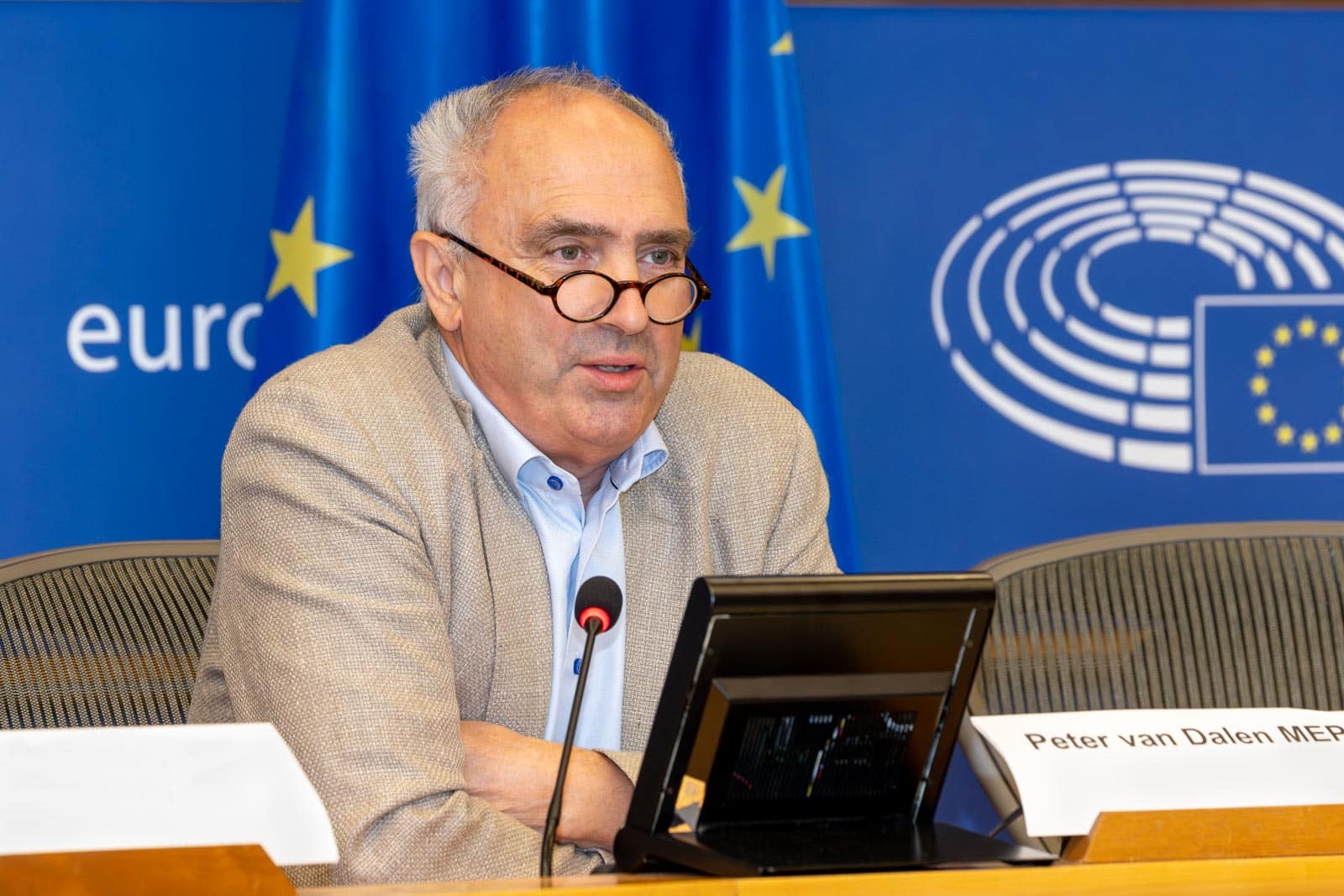European Parliament President Roberta Metsola will represent the European Parliament at the summit, address the heads of state or government at 15.00 and hold a press conference after her speech.
When: Press conference at around 15.30 on 29 June
Where: European Council press room and via EbS.
EU leaders will meet to discuss the latest developments in Russia, its war of aggression against Ukraine and the EU’s continued support for the country, as well as EU migration and asylum policy. They will also discuss cooperation on security and defence matters, the economic situation in the EU as well as relations with China and the upcoming summit with Latin American and Caribbean states.
Additional information can be found on the European Parliament’s website.
Plenary debate ahead of the European Council meeting
In a debate on 14 June, MEPs outlined their expectations for the 29-30 June EU summit, in light of recent events in Ukraine and progress towards concluding the EU’s Migration Pact. They denounced the destruction of Ukraine’s Nova Kakhovka dam, the latest war crime committed by Russia that must have consequences, called for the EU to continue to strongly support Ukraine, for new sanctions against Russia, and for the billions of frozen assets by Russian oligarchs to be used to reconstruct Ukraine.
On migration and asylum, some MEPs welcomed the agreement reached by member states as a step forward that will help improve the treatment and reception of refugees, better protect the EU’s external borders, and enable the EU to fight human trafficking more effectively. Some speakers also stressed that the EU must do more to fight the causes of migration and that it needs to cooperate more with third countries. Others criticised the debate as toxic and driven by fear, noting that strengthened borders will not lead to fewer refugees and that the deal in Council de facto abolishes the right to asylum in the EU.
Further reading
https://www.europarl.europa.eu/news/en/press-room/20230609IPR96211/meps-look-ahead-to-next-eu-summit
Russia’s war of aggression against Ukraine
In the resolution adopted on 15 June, MEPs call on NATO allies to honour their commitment to Ukraine and pave the way for Kyiv to be invited to join the defence alliance. They stress that they expect that the “accession process will start after the war is over and be finalised as soon as possible”. Until full membership is achieved, the EU and its member states, together with NATO allies and like-minded partners, must work closely with Ukraine to develop a temporary framework for security guarantees, MEPs say, which is to be implemented immediately after the war.
MEPs condemned in the strongest possible terms Russia’s destruction of the Kakhovka dam on 6 June, which constitutes a war crime, and call for a comprehensive and adequate EU recovery package for Ukraine that should focus on the country’s immediate, medium- and long-term relief, reconstruction and recovery.
Parliament also reiterated its support for the European Council’s decision to grant Ukraine EU candidate status last year and ask for a clear pathway for the start of accession negotiations, which, with enough support, could begin already this year.
On 9 May plenary approved a proposal to renew the suspension of import duties, anti-dumping duties and safeguards on Ukrainian exports to the European Union for another year, against the background of Russia’s war of aggression that is hampering Ukraine’s ability to trade with the rest of the world. The suspension of tariffs applies to fruits and vegetables subject to the entry price system, as well as agricultural products and processed agricultural products subject to tariff-rate quotas. Industrial products have been subject to zero duties since 1 January 2023 under the EU-Ukraine Association Agreement, so they are not included in the new proposal.
Further reading
https://www.europarl.europa.eu/news/en/press-room/20230609IPR96214/parliament-calls-on-nato-to-invite-ukraine-to-join-the-alliance
https://www.europarl.europa.eu/news/en/press-room/20230524IPR91909/meps-endorse-plan-to-provide-more-ammunition-for-ukraine
https://www.europarl.europa.eu/news/en/press-room/20230505IPR84918/meps-renew-trade-support-measures-for-ukraine
https://www.europarl.europa.eu/news/en/headlines/priorities/ukraine
MEPs to contact:
David McALLISTER, (EPP, DE) Chair of the Committee on Foreign Affairs
Nathalie LOISEAU (Renew, FR) Chair of the Subcommittee on Security and Defence
Michael GAHLER (EPP, DE) Standing Rapporteur on Ukraine
Andrius KUBILIUS (EPP, LT) Standing Rapporteur on Russia
Security and Defence
Proceeding under the urgent procedure, MEPs endorsed on 1 June the legislative proposal on the Act in Support of Ammunition Production (ASAP), tabled by the European Commission on 3 May. The aim is to deliver ammunition and missiles urgently to Ukraine and to help member states refill their stocks. By introducing targeted measures including €500 million in financing, the Act aims to ramp up the EU’s production capacity and address the current shortage of ammunition, missiles and their components.
On 27 June, Parliament and Council reached a deal on new rules to incentivise EU countries to jointly procure defence products and support the EU’s defence industry. The new regulation will establish a short-term instrument to boost the European defence industry through common procurement (EDIRPA), until 31 December 2024. The tool should help member states fill their most urgent and critical defence needs, especially exacerbated by their transfers of defence products to Ukraine, in a voluntary and collaborative way.
It should also help to foster the competitiveness and efficiency of the European Defence Technological and industrial base, including SMEs and mid-capitalisation companies, by ramping up manufacturing and opening supply chains to cross-border cooperation. At least three member states are needed to activate common procurement, which will cover defence products as defined in Article 2 of Directive 2009/81/EC, including combat medical equipment.
Further reading
https://www.europarl.europa.eu/news/en/press-room/20230524IPR91909/meps-endorse-plan-to-provide-more-ammunition-for-ukraine
https://www.europarl.europa.eu/news/en/press-room/20230626IPR00817/eu-defence-deal-on-joint-procurement-of-defence-products
MEPs to contact:
David McALLISTER, (EPP, DE) Chair of the Committee on Foreign Affairs
Nathalie LOISEAU (Renew, FR) Chair of the Subcommittee on Security and Defence
Michael GAHLER (EPP, DE) Standing Rapporteur on Ukraine and on EDIRPA
Andrius KUBILIUS (EPP, LT) Standing Rapporteur on Russia
Zdzisław KRASNODĘBSKI (ECR, PL), rapporteur for the Industry, Research and Energy Committee on EDIRPA
Migration and asylum policy
On migration and asylum, Parliament adopted its negotiating position for talks with Council on 20 April 2023.
Asylum and migration management
The negotiating mandate for the central piece of legislation of the Asylum and Migration Package, on asylum and migration management, was backed by MEPs with 413 votes in favour, 142 against and 20 abstentions. The draft regulation establishes improved criteria to determine which member state is responsible for processing an asylum application (the so-called ‘Dublin’ criteria) and would ensure responsibility is shared fairly between countries. It includes a binding solidarity mechanism to assist countries experiencing migratory pressure, including following search and rescue operations at sea.
Screening of third-country nationals
The decision to start negotiations on this new regulation was confirmed with 419 votes in favour, 126 against and 30 abstentions. For the centralised system on conviction information (ECRIS-TCN) negotiations, the result was 431 votes in favour, 121 against and 25 abstentions. These rules will apply at EU borders to persons who do not in principle fulfil the entry conditions of an EU member state. They include identification, fingerprinting, security checks, and preliminary health and vulnerability assessment. In their amendments, MEPs added an independent fundamental rights monitoring mechanism that would also verify border surveillance, in order to make sure that possible pushbacks are reported and investigated.
Crisis situation
The decision to start negotiations for the crisis situations regulation was confirmed with 419 votes in favour, 129 against and 30 abstentions. The text focuses on sudden mass arrivals of third country nationals leading to a crisis situation in a particular member state that would, based on a Commission assessment, include mandatory relocations and derogations of screening and asylum procedures.
Long-term resident directive
By 391 to 140 and 25 abstentions, MEPs endorsed a negotiating mandate for proposed changes to the current long-term resident directive. These include granting EU long-term permits after three years of legal residence more quickly than before and the possibility to integrate persons enjoying temporary protection status. EU long-term residents would be able to move to another EU country without additional work restrictions and their dependent children would automatically be granted the same status.
Further reading
https://www.europarl.europa.eu/news/en/press-room/20230419IPR80906/asylum-and-migration-parliament-confirms-key-reform-mandates
https://www.europarl.europa.eu/news/en/press-room/20230327IPR78520/first-green-light-given-to-the-reform-of-eu-asylum-and-migration-management
https://www.europarl.europa.eu/news/en/press-room/20230327IPR78519/new-rules-on-screening-of-irregular-migrants-and-faster-asylum-procedures
MEPs to contact
Juan Fernando LÓPEZ AGUILAR (S&D, ES), Chair of the Committee on Civil Liberties, Justice and Home Affairs, rapporteur for the regulation for Crisis and Force majeure
Tomas TOBÉ (EPP, SE), rapporteur for the Regulation for Asylum and Migration Management
Birgit SIPPEL (S&D, DE), rapporteur for the Screening Regulation
Fabienne KELLER (Renew, FR), rapporteur for the Asylum Procedures regulation
Relations with China
Against the backdrop of China’s continued rise as a political and economic powerhouse on the world stage, MEPs discussed on 18 April the need for a coherent strategy on the superpower. MEPs were united in their call for an effective, consistent and unified strategy on China. We cannot be confrontational, but our policy should be based on reciprocity, mutual respect and respect of international law, they said. The EU has to defend its economic interests and values.
Some MEPs criticised the recent statement by French President Macron on Taiwan, deeming it naive to say Taiwan does not concern Europe. They also pointed out that the delivery of arms to Russia and changing the status quo on Taiwan are not acceptable for the EU. Against the backdrop of China’s oppression of the Uyghurs and other minorities in the Xinjiang region, some Members urged the EU to keep pushing Beijing to respect human rights, saying these rights are not an afterthought to the EU’s foreign policy, but rather constitute the core of it.
Further reading
https://www.europarl.europa.eu/news/en/press-room/20230414IPR80115/meps-call-for-clarity-and-unity-in-policy-on-china
MEPs to contact
Reinhard BÜTIKOFER (Greens/EFA, DE),Chair of the Delegation for relations with the People’s Republic of China
EU-Community of Latin American and Caribbean States (CELAC) summit
After visiting Brazil and Uruguay from 14 to 20 May, MEPs in the International Trade Committee concluded that “there was a general mutual understanding in both countries that the upcoming months are an excellent window of opportunity” to finalise the EU-Mercosur Association Agreement and bring its ratification forward during the second half of 2023. In this regard, the upcoming third EU-CELAC summit of heads of state or government, taking place in Brussels on 17-18 July 2023, could give crucial impetus to the process, both sides agree.
On 21-22 June, a delegation of MEPs from the Foreign Affairs Committee visited Brasília for talks with high-level representatives of the Brazilian government, members of the National Congress, civil society groups and think tanks. Among other things, they also discussed trade, the EU-Mercosur agreement, geopolitical challenges in Latin America, the upcoming EU-CELAC summit, as well as how to revamp EU-Brazil relations after the election of Lula da Silva as President of Brazil.
Further reading
https://www.europarl.europa.eu/news/en/press-room/20230512IPR88601/trade-committee-delegation-to-visit-brazil-and-uruguay
https://www.europarl.europa.eu/news/en/press-room/20230622IPR00401/foreign-affairs-committee-delegation-ends-visit-to-brazil
https://www.europarl.europa.eu/doceo/document/INTA-CR-749288_EN.pdf
MEPs to contact
David McALLISTER, (EPP, DE) Chair of the Committee on Foreign Affairs
Bernd Lange (S&D, DE), Chair of the International Trade Committee
Jordi Cañas (RENEW, ES), Chair of the Delegation for relations with Mercosur and standing rapporteur for Mercosur
Javi LÓPEZ (S&D, ES), Chair of the Delegation to the Euro-Latin American Parliamentary Assembly













